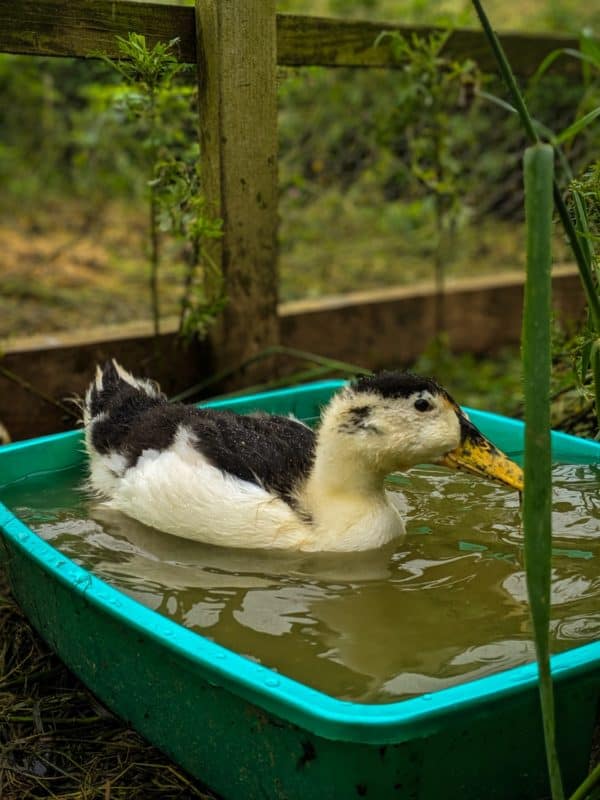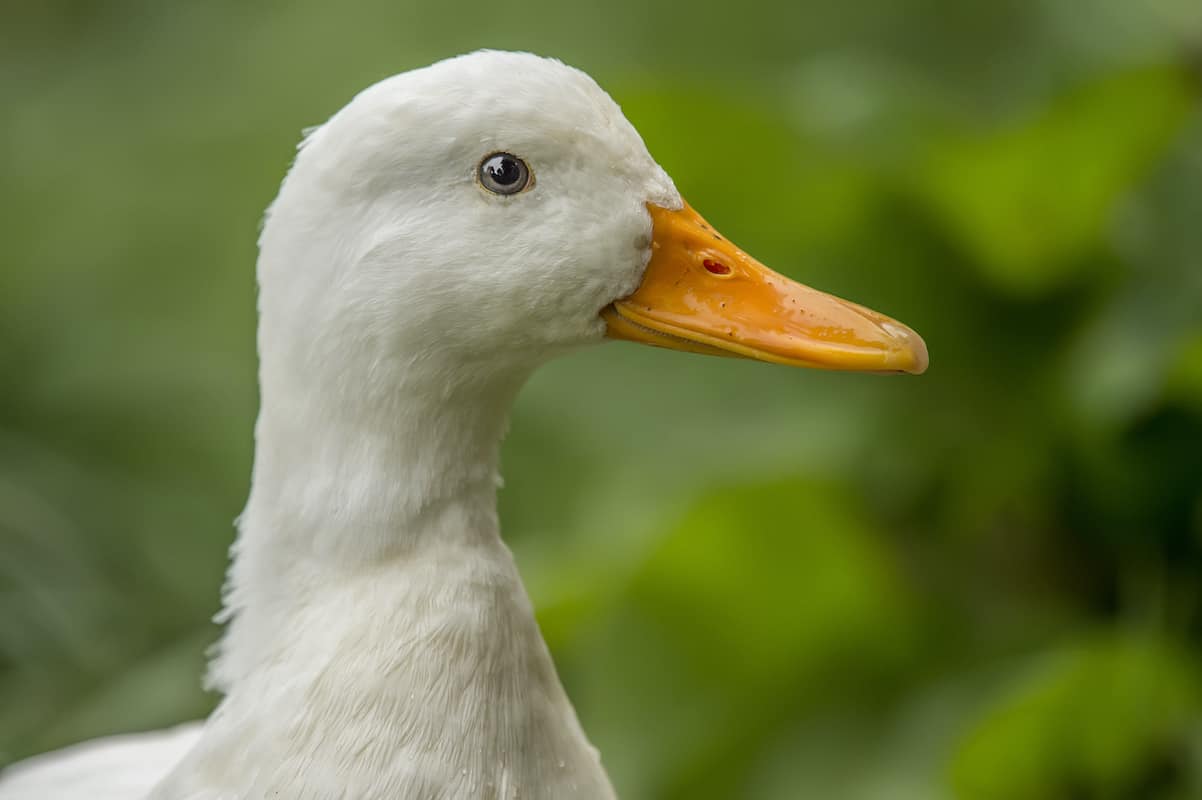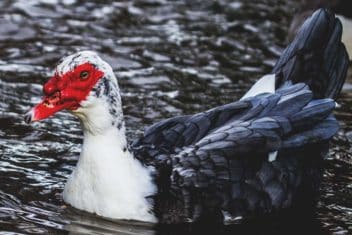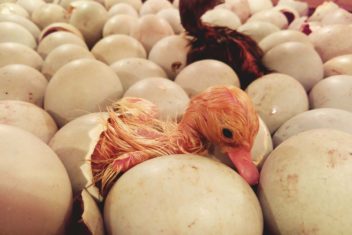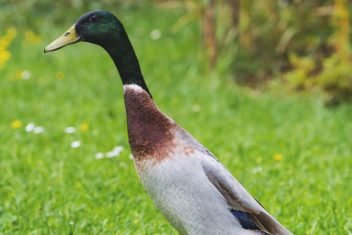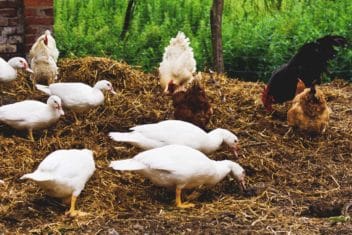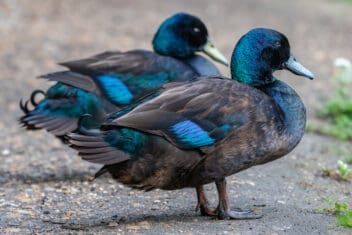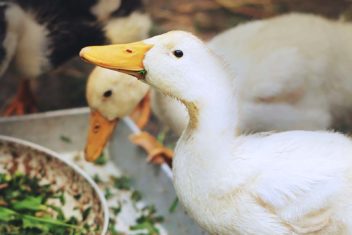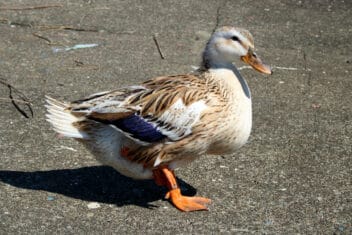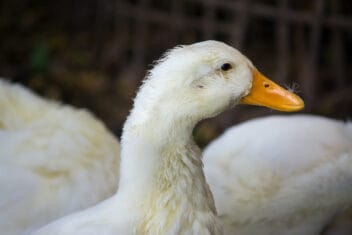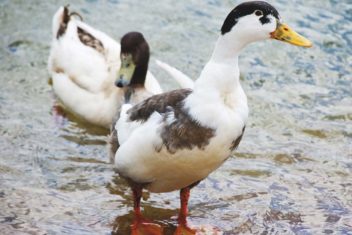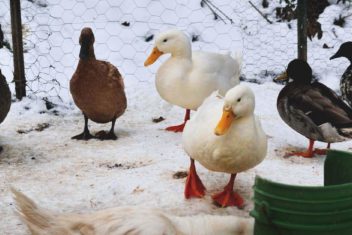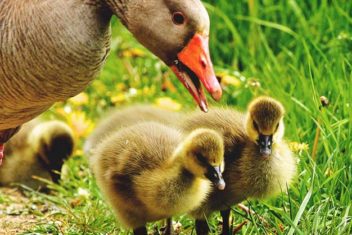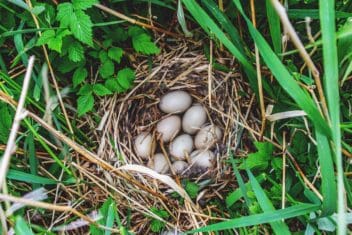When it comes to our little ducky friends, there are some niche duck words that are a little different from other poultry. I called a male duck a rooster for some time before I realized they had a name for themselves.
Knowing the proper terms to use when talking duck lingo is very helpful when searching up things on the internet or talking about ducks to fellow duck keepers.
What to Call a Duck Based on Age and Sex
Just like with other poultry, you can use specific duck terms depending on their age and sex. Knowing what to call your ducks is helpful when it comes to being specific about the bird you’re talking about.
1. Ducklings
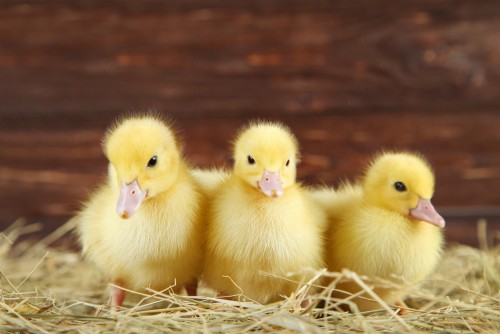
Those fuzzy little web-footed ducks fresh out of the shell are called ducklings and they may just have the award for the cutest baby animal. I mean really, I prefer chickens over ducks until you show me a duckling and then I’m 100% team duck. Any young duck of either gender could appropriately be called a duckling.
2. Straight Run Ducklings
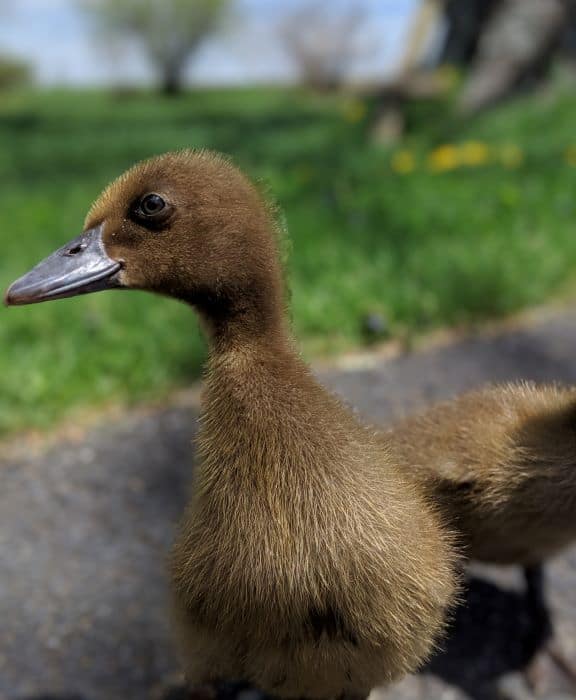
Occasionally you may encounter the duck word straight run duckling, particularly when it comes to buying ducklings. Straight run simply means unsexed or “as hatched”, so the duckling could easily be a male or female.
The opposite of straight run would be a sexed duckling, which you would be able to purchase or advertise as the known sex.
3. Hen
As with chickens, an adult female duck is commonly referred to as a hen. Hens are usually over a year old, laying eggs, and are definitely sexually mature. Depending on the breed of duck, a hen could be apt to go broody and sit on a clutch of eggs with the intent of hatching them.
4. Drake
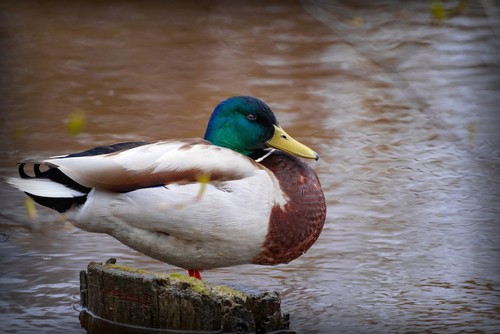
Unlike what my young self had thought for the longest time, male ducks are, in fact, not called roosters. If you have a male duck, the technical duck term for him is drake.
Drakes are sexually mature and able to mate with and fertilize a hen’s eggs. In most breeds, they are more flamboyant and colorful then the hens.
What to Call a Whole Bunch of Ducks
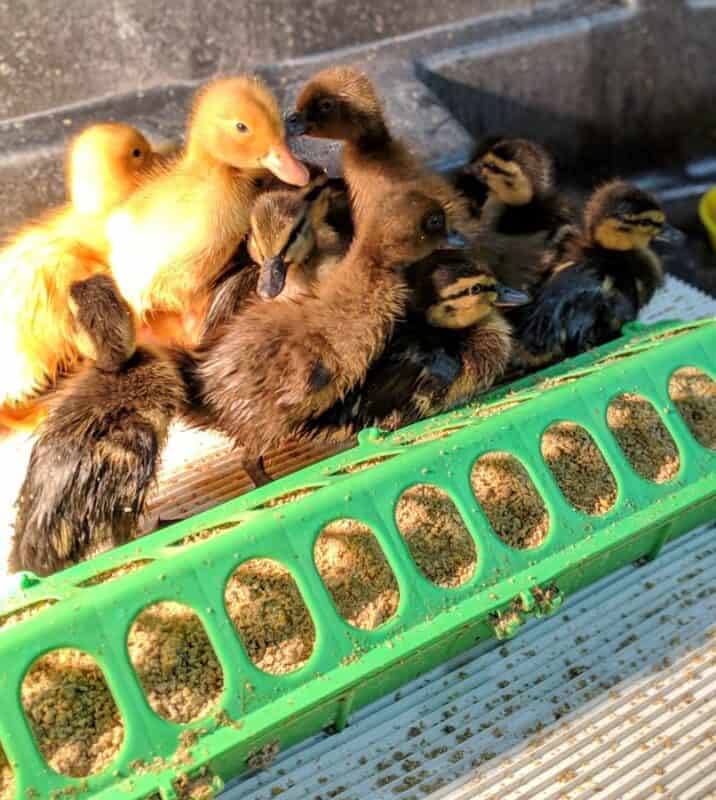
When it comes to groups of ducks, there are several names for the whole lot of them together. The most common name for this group is a flock, but there are many other unique names used to refer to the bunch. When on the ground, a group of ducks could be referred to as a Badelynge. In the water, you can call a group of ducks a paddling or a raft.
To be perfectly honest, calling a bunch of ducks a “flock” is a pretty common blanket duck term that won’t confuse anyone.
Getting to Know Duck Anatomy
Sure, we all know what a head and a tail are, but have you ever heard of a caruncle, or a cloaca? Perhaps you’ve studied your poultry terminology and you have, but chances are these duck words are new to many novice duck keepers.
1. Bean
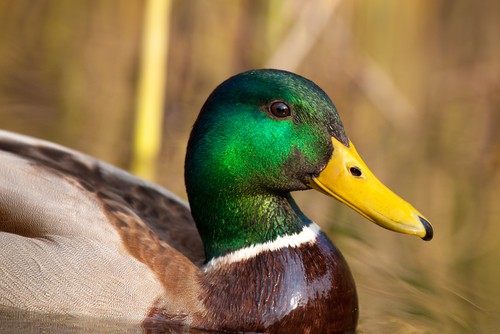
I often looked at a duck’s bill and found the hard little bump on the end quite adorable. However, I never realized that little bump has a name – Bean.
Often the bean is darker than the rest of the beak and is always on the very tip of the bill. Beans are used for helping to nap insects as well as defending the duck.
2. Caruncles
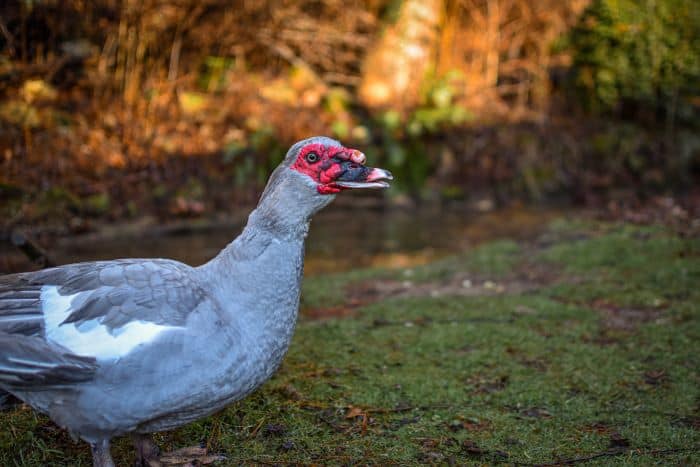
For those immersed in the turkey world, the term caruncle may not be a new one. All turkeys have caruncles, as we discussed in our turkey anatomy post. There is one breed of duck that proudly sports caruncles. Muscovies are easily spotted for their fleshy red faces and they are the only duck breed to display caruncles.
3. Vent
Did you know that both eggs, male reproductive organs, and fecal matter come out of the same hole on a duck? A decent amount of people didn’t know this interesting fact, and it usually comes off as fairly disgusting. Nonetheless, such is how ducks are designed and the all-purpose hole located at the back of the duck is called a vent.
4. Cloaca
Since a whole lot comes out of the same exit on a duck, there must be a spot where everything comes together. Just inside the vent is the cloaca, where the digestive tract and reproductive system meet.
5. Egg Tooth
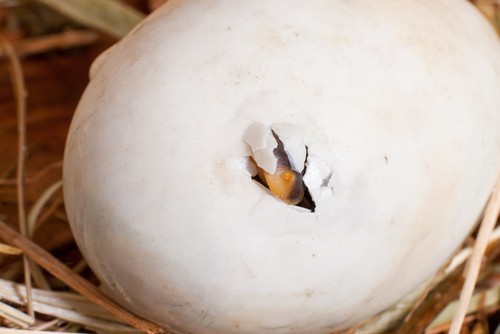
When a duckling hatches, it has a special tool designed to help assist with breaking out of the eggshell. A new duckling will have a slightly sharp and rough nub on the tip of its bill that will fall off after a day or two.
Duck Words for Duck Feathers
Ducks are certainly a sweet sight to behold with their sheen of perfectly oiled and preened feathers. There are three different kinds of feathers that make up a duck and each one serves its own special purpose.
1. Contour Feathers
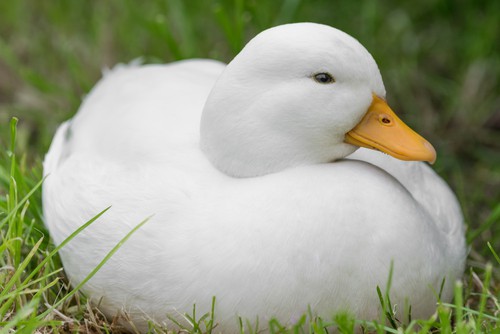
Contour feathers are the hard outer feathers that make up the “shell”, so to speak, of the duck. The colorful feathers on a duck are usually the contour feathers, as well as the feathers that are oiled to keep a duck dry.
When a duck preens, they use their bill to click the barbs on contour feathers into place so the feathers do not become ruffled. While straightening their feathers, ducks also coat their contour feathers in oils to keep themselves dry when they venture into the water.
2. Flight Feathers
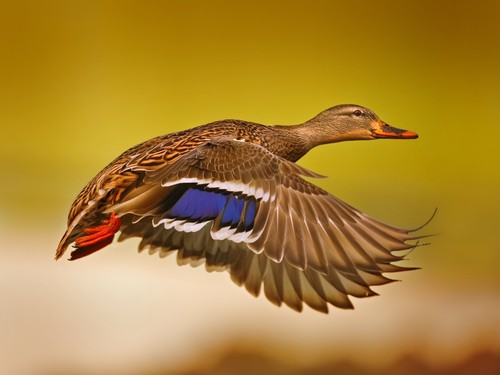
Flight feathers are located on the wings where they come in handy for the flight of a duck. Just like contour feathers, flight feathers must be preened and oiled in order to remain in proper working condition.
3. Down Feathers
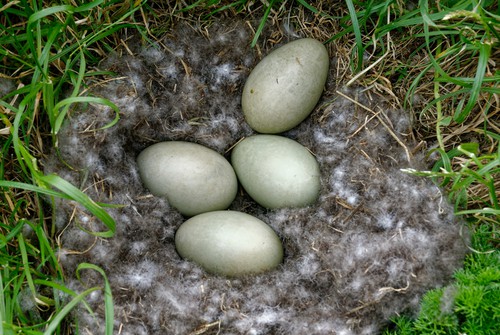
Have you ever wondered how ducks slip in seemingly frigid water but remain warm and happy as a clam? Down feathers are the way that ducks keep themselves warm and insulated even on cool days and in cold water.
When ducklings are freshly hatched, all they have is a soft and fluffy layer of fuzz that is technically called down. As ducks grow up, they grow their contour and flight feathers and down feathers become fully developed to insulate the duck properly.
4. Molt
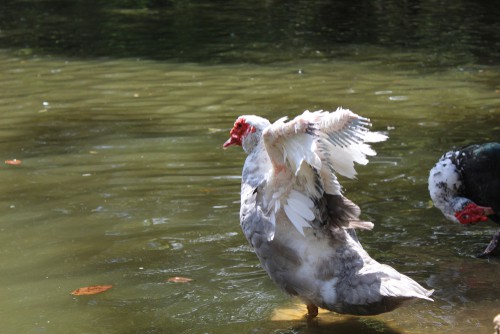
Molts are very important to feather health in ducks. When feathers get ragged and worn out, they won’t properly insulate and deflect water. Twice a year, a duck experiences a molt where the old and worn out feathers fall out so new ones can grow in. The two separate molts are called eclipse and nuptial molts.
Fun Fact!
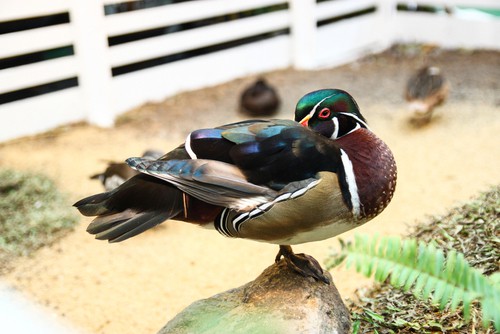
Ok, so this fun tidbit isn’t necessarily a duck terminology fun fact, but it’s likely my favorite thing about ducks.
A duck brain is divided into two parts. This means that one half of the brain can rest while the other stays alert. If you’ve ever seen a duck with its head nestled under one wing and one eye open, it could be sleeping even though it doesn’t look like it! This helps a duck to keep watch for potential dangers while resting. The only time a duck rests both sides of its brain at the same time is when it feels safe within a flock.
